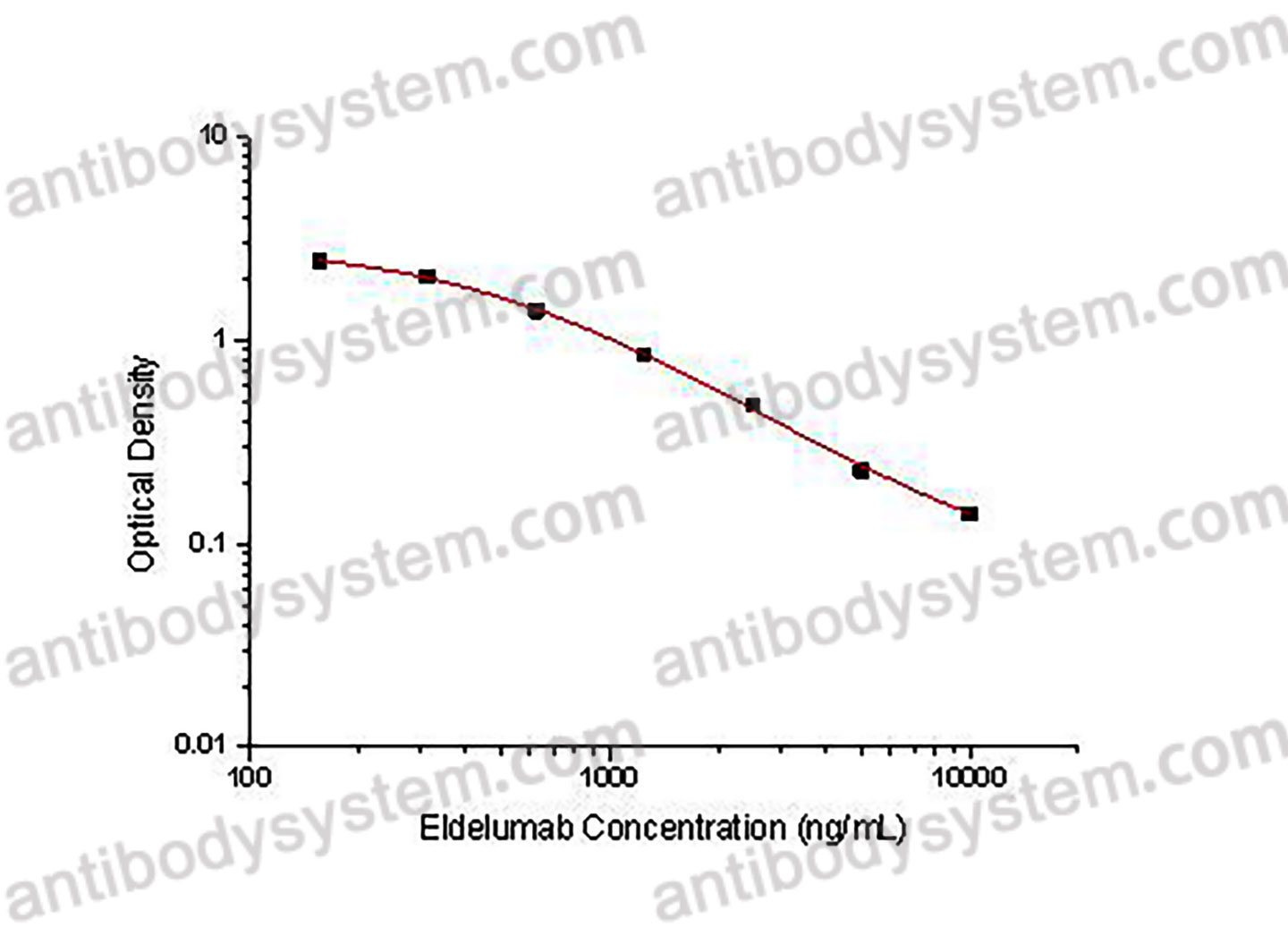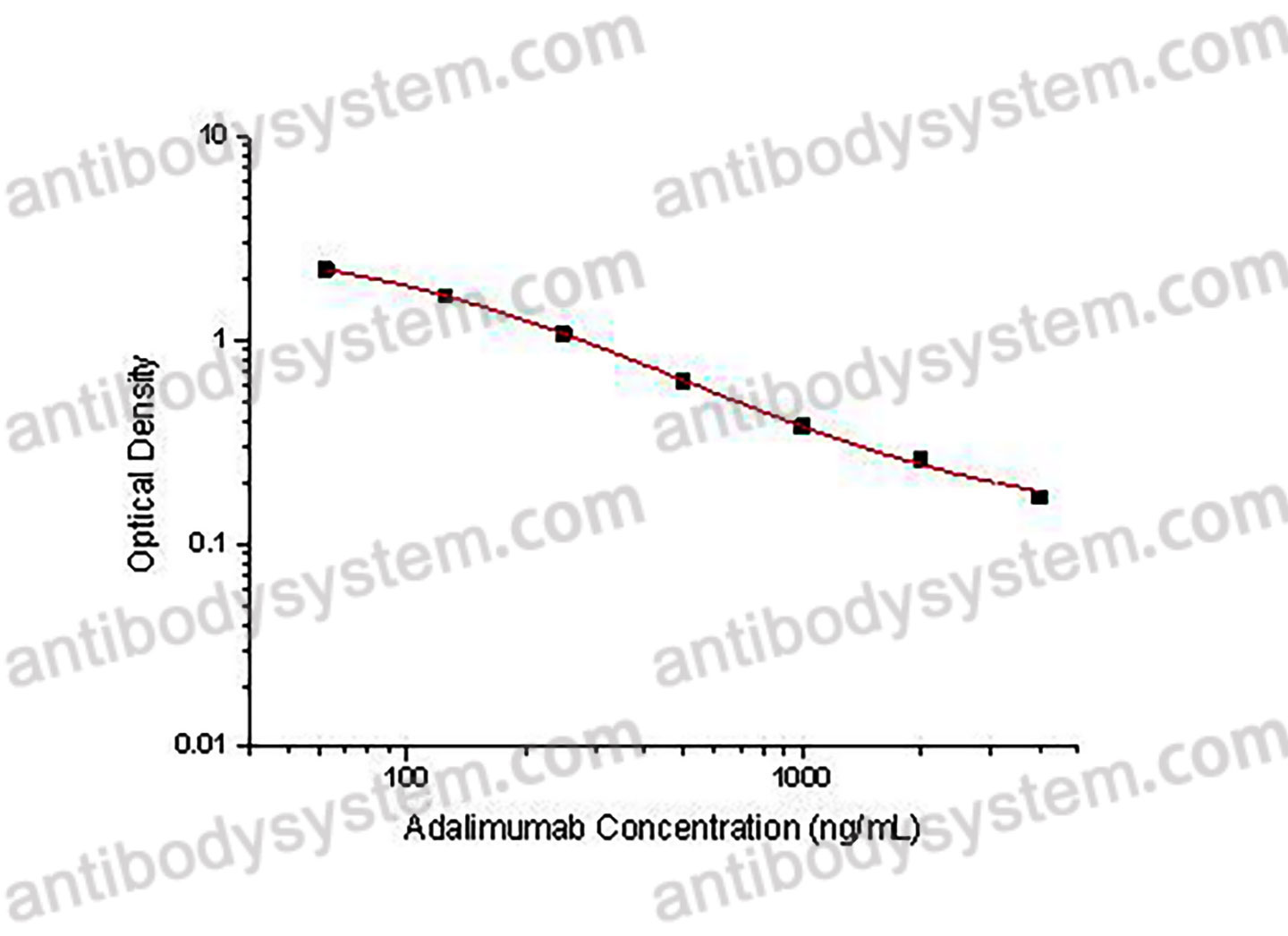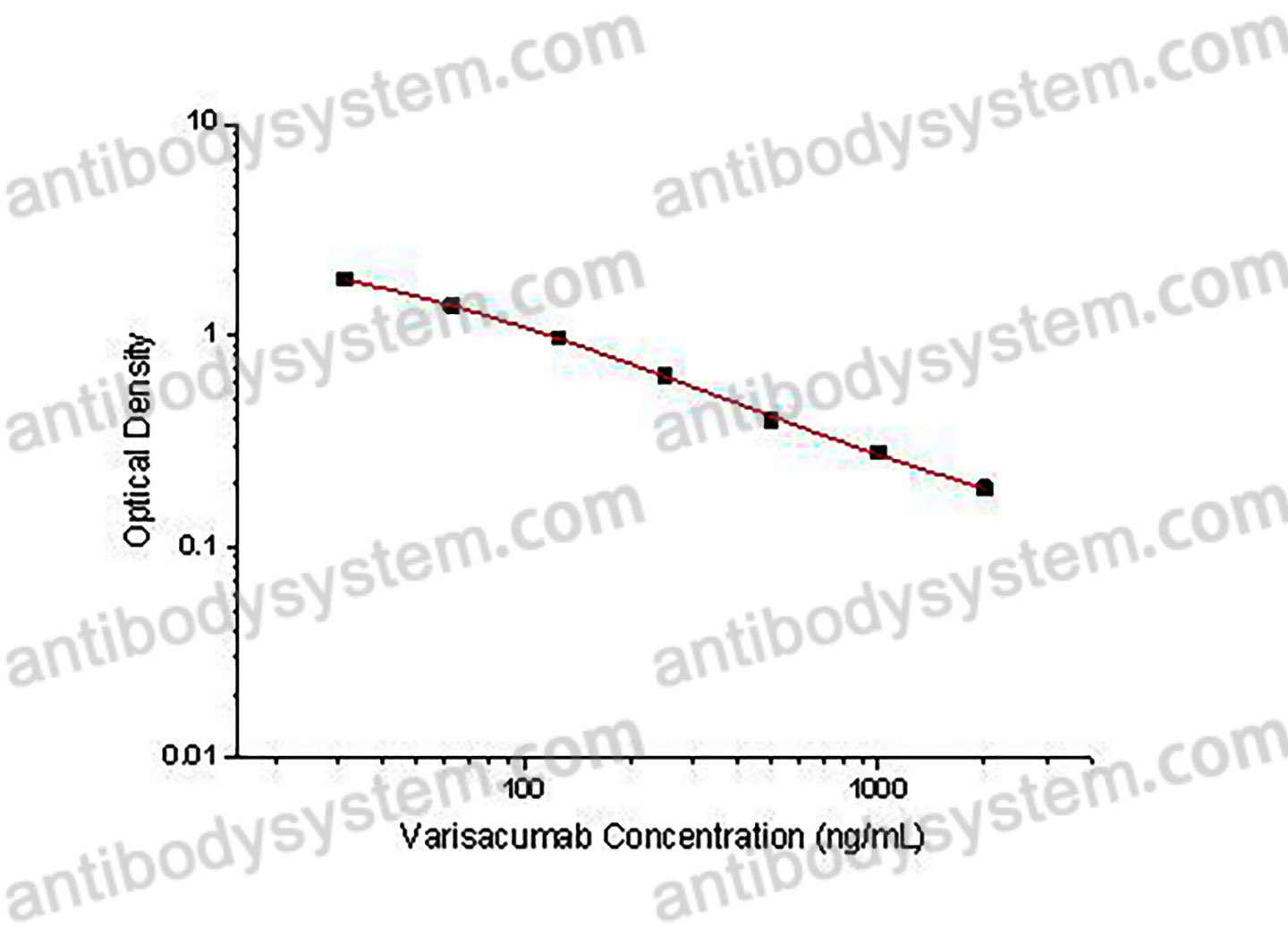Catalog No.
KDC01901
Description
PRINCIPLE OF THE ASSAY This assay employs the quantitative competitive enzyme immunoassay technique. Recombinant Human CXCL10 has been pre-coated onto a microplate. Standards or samples are premixed with biotin-labeled antibody and then pipetted into the wells. Eldelumab in the sample competitively binds to the pre-coated protein with biotin-labeled Eldelumab. After washing away any unbound substances, Streptavidin-HRP is added to the wells. Following a wash to remove any unbound enzyme reagent, a substrate solution is added to the wells and color develops in inversely proportion to the amount of Eldelumab bound in the initial step. The color development is stopped and the intensity of the color is measured.
Applications
Used for the quantitative determination of Eldelumab concentration in serum and plasma.
Detection method
Colorimetric
Sample type
Plasma, Serum
Assay type
Quantitative
Range
156.25 - 10,000 ng/mL
Sensitivity
58.12 ng/mL
Precision
Intra-Assay Precision (Precision within an assay): <20%
Three samples of known concentration were tested sixteen times on one plate to assess intra-assay precision.
Inter-Assay Precision (Precision between assays): <20%
Three samples of known concentration were tested in twenty four separate assays to assess inter-assay precision.
|
|
Intra-Assay Precision |
Inter-Assay Precision |
||||
|
Sample |
1 |
2 |
3 |
1 |
2 |
3 |
|
n |
16 |
16 |
16 |
24 |
24 |
24 |
|
Mean (ng/mL) |
4411.8 |
1021.8 |
280.9 |
4375.8 |
1032.9 |
248.8 |
|
Standard deviation |
326.4 |
62.8 |
32.0 |
530.5 |
103.2 |
32.5 |
|
CV (%) |
7.4 |
6.1 |
11.4 |
12.1 |
10.0 |
13.1 |
Recovery
80-120%
Shipping
2-8 ℃
Stability and Storage
When the kit was stored at the recommended temperature for 6 months, the signal intensity decreased by less than 20%.
Alternative Names
BMS-936557, MDX-1100, CAS: 946414-98-8
Background
Eldelumab (alternative identifier BMS-936557) is a fully human monoclonal antibody (type IgG1 kappa) that targets chemokine (CXC motif) ligand 10 (CXCL10)/Interferon-γ-inducible protein-10 (IP-10). This drug was developed by Bristol-Myers Squibb and Medarex and designed for the treatment of Crohn's disease and ulcerative colitis. To date, eldelumab has been investigated as an induction and maintenance therapy in active Crohn's disease, and its induction treatment demonstrated trends towards clinical and endoscopic efficacy with no new safety signal in a phase IIa study. Meanwhile, inhibiting IP-10 activity through the use of the monoclonal antibody, eldelumab, demonstrated efficacy in patients who achieved high serum concentrations in this phase II, randomized, controlled, proof-of-concept study of moderate-to-severe ulcerative colitis.



